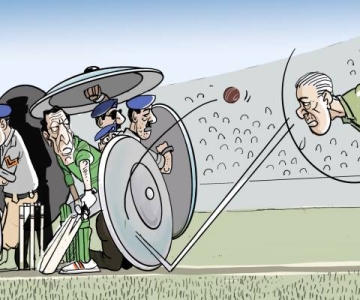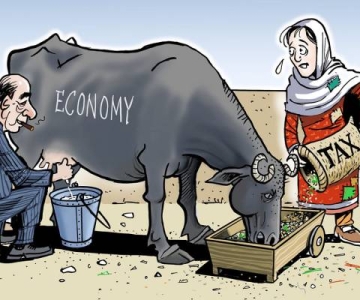My op-ed published in Express-Tribune today
The federal government had warned the provincial authorities of the impending attacks. The usual slovenliness and chaotic governance of the Pakistani variety treated it as just another communiquè. The police arrived late; and terrorists had implemented the plans rather adroitly making a mockery of Pakistan across the globe. Imagine a terrorist was nabbed through civic action, not the torture-friendly police. And guess where an injured miscreant was taken? No surprises here. A brutal murderer backed by large terror networks was admitted to Lahore’s busy public hospital where security was minimal given the level of threat.
Thus the gruesome drama on the morning of June 1, inspired by Hollywood thrillers, was witnessed in real time by millions. Amid the chaos, nothing made sense: the state, the terrorists and the abstract notion of security. If a public hospital with police and big gates is not safe then what was the point of a managing a public facility. We could very easily be in a fiefdom of a medieval Raja. But this is the 21st century – the age of information and fast paced change.
Thankfully, the Punjab authorities did not blame an external agency for this event. If RAW or Blackwater were still functional and powerful after May 28 then our huge state apparatus might as well be disbanded, a friend of mine commented in the middle of that horrible night.
Punjab and its playground – the state of Pakistan – remain quite complacent even when the terrorists, like the Mongol barbarians, are poisoning its foundations. As if the sectarian networks operating for decades from the south were not enough, its cultural centre Lahore is, brick by brick, being dismantled. What will happen if more of such incidents occur? Lack of public safety and eroding trust in the state will lead to further anarchy thus paving the way for further violence.
Ordinarily, in such circumstances, a social transformation is in order. But in our case the faded hope of such a revolutionary change is haunted by the spectre of Wahabi-Salafi totalitarianism. God forbid, such an eventuality is still a remote possibility. However, the institutional decline will further impact our already difficult lives marked by lack of services, security and an uncertain future for the youth that comprises half the population.
It is time for the Pakistani state to take decisive action; and parliament to focus on our existential threat? Or is it too late?
Published in the Express Tribune, June 4th, 2010.



